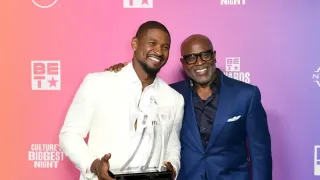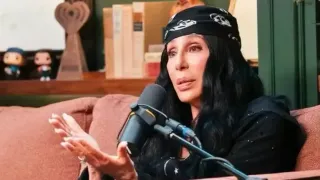September 16, 2024
Review Roundup: 'Queer' Impresses Critics
READ TIME: 14 MIN.
Hollywood Reporter. David Rooney
Read full review at this link.
"In 'Queer,' Luca Guadagnino meets William S. Burroughs on the iconoclast's own slippery terms and the result is mesmerizing. . . .
"Working again with Justin Kuritzkes, his screenwriter on 'Challengers,' Guadagnino paints an evocative picture of ex-pat ennui in post-World War II Mexico City, establishing the foundations of a love story grounded in realism before shifting into fantasy as the narrative becomes a drug-addled mosaic. The film was acquired ahead of its Venice premiere by A24, which is planning a release later this year.
"It's hard to think of a more ideal director than Guadagnino to explore queerness, sensuality and the shifting terrain of romantic intoxication, and he's found the perfect traveling companion in Daniel Craig. In a transfixing performance that balances colorful affectation with raw hunger, the actor makes Lee a magnetic raconteur whose shield of worldly composure falls away as Eugene (Drew Starkey) eludes his grasp, leaving him a virtual ghost by the end of the film. . . .
"While Craig makes this loquacious side of the character highly entertaining, he's also superb at showing Lee's unaccustomed self-exposure, his aching need for human contact increasing his vulnerability as his addiction to Eugene becomes chronic. With illuminating new self-knowledge comes crippling weakness, something Craig fully conveys in a ballsy performance covering a broad psychological and emotional spectrum."
New York Magazine, Alison Willmore
"It's curiously fitting that of the two films director Luca Guadagnino has out this year, the queer tennis love triangle one is called 'Challengers 'while the challenging William S. Burroughs adaptation is titled 'Queer.' The pair weren't meant to be an intentional double feature – 'Challengers' was originally slated for a 2023 release until the strike pushed it back – but the two end up functioning as a survey of Guadagnino's inexhaustible interest in the topic of desire. . . .
"The stylistic choices Guadagnino makes throughout 'Queer 'are invariably more engaging than the central story itself, no matter what the filmmaker tries unsuccessfully to will it into. Like many people, Guadagnino first encountered Burroughs's writing when he was a teenager, and 'Queer' does feel like someone trying on a beloved article of clothing from high school that no longer really fits. It's an awkward combination of fidelity to historical research and wish fulfillment that doesn't serve anyone except its creator."
The Guardian, Peter Bradshaw
4 stars out of 5. Read full review at this link.
"'Queer' is a story of lost love and last love and mad-about-the-boy obsession, featuring an excellent performance from Daniel Craig – needy, horny, moody, like his 'Knives Out' detective Benoit Blanc on steroids and with something of his portrayal of Ted Hughes from 2003's 'Sylvia.'
"It's adapted by screenwriter Justin Kuritzkes from the autobiographical novel by William Burroughs, directed by Luca Guadagnino and wonderfully shot by cinematographer Sayombhu Mukdeeprom with digitally rendered landscapes and streetscapes that bring the boozy, bleary reality into alignment with the many (disquieting) dream sequences.
"Craig always commands the screen in his regulation honorary consul crumpled white suit, hat, glasses and a pistol that he bizarrely carries around openly holstered, a droll phallic symbol for this erotic cowboy who is very much a lover not a fighter.
"Guadagnino shows that this is an eroticism of the streets: Lee spends so much of his time walking from bar to bar, or – with a guy – from a bar to a hotel. (There's a great sequence when Lee walks to the accompaniment of Nirvana's Come As You Are and that track never sounded more purely sensual.)"
IndieWire, Ryan Lattanzio
Read full review at this link.
"As an adaptation of 'Junkie' author William S. Burroughs' second novel, 'Queer' is about chemical addictions, yes. But it's even more about being so addicted to a person that, no matter how much you turn yourself inside out trying to get them to love you – charming them with your literary voice, lathering yourself into a stupor on drugs, or even going to the far reaches of a jungle – they will never love you the way you want them to, and even telepathy couldn't help explain to you why.
Luca Guadagnino's profound and kaleidoscopic new film begins in a post-World War II Mexico City of the mind and ends in the Ecuadorian rainforest on an ayahuasca trip that's part Apichatpong Weerasethakul, part '2001: A Space Odyssey,' but fully the '"'Call Me By Your Name'"' director's own strange, sui generis creation. All sweaty, raw, self-lacerating, and debauched, William Lee (Daniel Craig) is an ex-pat who wanders from bar to bar in the Mexican capital in the 1940s, here recreated at Rome's Cinecittà Studios with the rigorous detail, scope and strangeness of the warehouse mindscape in Charlie Kaufman's 'Synecdoche, New York.' . . .
"Beginning with Sinead O'Connor's a cappella cover of Nirvana's 'All Apologies' across the opening titles before the soundtrack resets with an actual Nirvana song, 'Come as You Are,' Guadagnino's film takes us into a squalid splendor of a Mexico City where being queer is "a curse" (Lee's words) and a liberation. Where, as 'All Apologies' says, 'everyone is gay.' . . .
"Where the first half is pure sensuous Guadagnino hangout yearning-romance picture, the second is the "director's most visually daring cinematic conquest yet, a detour not part of Burroughs' book. (Here, 'Challengers's'' screenwriter Justin Kuritzkes handles the adaptation, blowing open Burroughs' slim novel.) Guadagnino wants not only to expand your consciousness as a moviegoer, but to cut you open and rearrange all the parts of you that see and feel things when you watch a film at all. . .
"Guadagnino had surely seen John Maybury's 1999 cult film 'Love Is the Devil,' starring Derek Jacobi as Francis Bacon and Daniel Craig as his dejected criminal lover George, before casting Craig in a role unlike anything the former Bond star has done before. The actor may be almost too unbelievably jacked to play a junkie, but Craig's brilliant performance is all inner torment he wears on the outside as a deeply lonely man doomed to an unrequited all-consuming love, funny and tragic in his inability to help himself. The handsome Starkey, in his breakout screen role after TV's 'Outer Banks,' haunts the screen as an adonis out of reach, tantalizingly inscrutable and embodying the sort of recognizable love object that may live only inside your head. Few contemporary films understand so penetratingly the self-annihilating potential of desire when it's only half-requited. Or even when it is fully."
Vanity Fair, Richard Lawson
Read full review at this link.
"Adapted from the novel by William S. Burroughs, 'Queer' is a strange and despondent look at a man wasting away from desire. It's about other things, too–the subtle and overt predations of expat life, the search for transcendent experience–but all seems to loop back to one man's fixation on another, a maddening half-sated hunger.
"Daniel Craig plays Lee, a sozzled, Burroughsian flaneur living in Mexico City in the early 1950s. He spends his time carousing at a handful of bars, having tart conversations with fellow Americans or cruising for sex. He's disgusted by his proclivities, though not shy about them. Lee is also, we later learn, in the grips of a heroin addiction, which he treats with a resigned offhandedness. Craig, capable of such smoothness when playing James Bond or Benoit Blanc, lets himself be sweaty, disheveled, a disaster reeling and staggering around in a soiled linen suit. . . .
" . . . 'Queer' is offbeat, abstract, erratic in mood and tempo–befitting an adaptation of Burroughs's work. It can be a mean and off-putting film, though some of our revulsion is born of the horror of self recognition. To liven the mood, Guadagnino stages a few sex scenes that–when stripped of context, maybe–certainly qualify as hot. He uses anachronistic songs–there are two Nirvana covers, for example–to score scenes, alongside Trent Reznor and Atticus Ross's pulsing, mechanical original compositions. The film is a riot of style and technique, growing ever more surreal as Lee chases after Gene, and after a validation that will never come."
Variety, Owen Glieberman
Read full review at this link.
"Adapting Burroughs' slender unfinished novel, which was written as a sequel to 'Junkie' (1953) but not published until 1985 (it was Burroughs who kept it out of circulation, maybe because after defining his brand with 'Naked Lunch' he was no longer willing to be seen as that vulnerable), Guadagnino, the brilliant director of 'Challengers' and 'Call Me by Your Name,' working from a screenplay by 'Challengers'' Justin Kuritzkes, has a splendid time immersing us in the seamy corners of Mexico City, which in this movie recalls the sleepy '50s border town of Orson Welles' 'Touch of Evil.' He colors in a community: Lee and the other queers who hang out at the Ship Ahoy, a tastefully lit bar/restaurant, like Joe, a roly-poly nerd libertine (played by Jason Schwartzman, unrecognizable under ruddy padding, a bushy beard, and tortoise-shell glasses), or Dumé (Drew Droege), a vicious queen who also holds court at the Green Lantern, the district's more seriously queer bar. . . .
"'Queer,' in its first half, is a luscious barbed comedy of liberation, punched along by its anachronistic music choices (Nirvana, Prince, New Order). Lee, who calls himself a 'man of independent means' (he has family money), is content to live this life of pleasure and indolence, to revel in his addictions. The Mexico City queer scene we see is both squalid and a kind of paradise. The men share their cruising stories and bitch at each other with bitter understanding. And there's an undeniable racial/class hierarchy at work, with Lee picking up a young Mexican (played by the gap-toothed pop star Omar Apollo), fingering his bronze caterpillar necklace with a kind of casual colonial entitlement. . . .
"'Queer,' in its second half, turns into a very different movie, a trippy road comedy about the search for mind-altering transcendence. The film loses some of its pulse; it meanders. . . .
"Yet even as 'Queer' sinks into a kind of torpor, this daring and indulgent sequence is also a fulfillment of the film's vision of William Burroughs, and of queer love."






